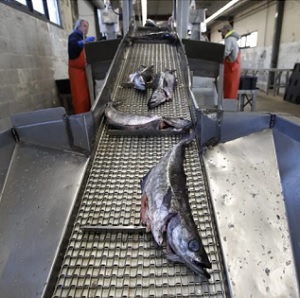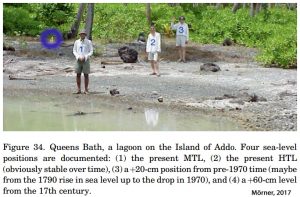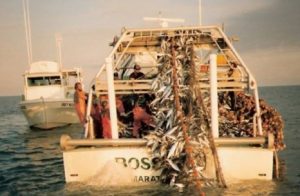Tag Archives: Coronavirus
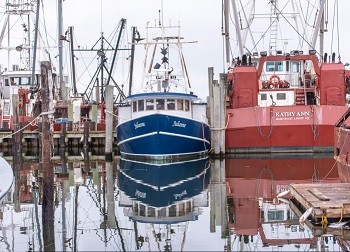
Varied New Jersey Fishing Businesses May Apply for Grant for 35 Percent Loss in 2020
Since the pandemic began, fishing revenue in New Jersey is down about 35 percent, according to the N.J. Department of Environmental Protection. Viking Village commercial dock General Manager Ernie Panacek said, “All the commercial entities will be awarded something … it depends on each individual case” and may not be “a lot,” he said. “We deferred some (fishing) trips away from March and April because of the business slowdown. I kept everybody working here, but we lost revenue because we lost trips and limited the trips, made them smaller.” Fortunately, there are always consumers attracted to a quality product. If they weren’t able to get it inside a restaurant, a number of consumers bought it anyway. >click to read< 13:04
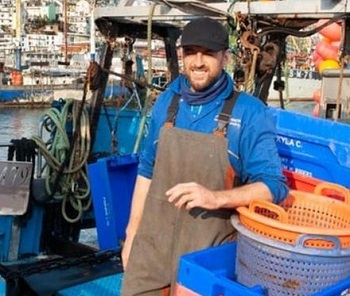
Coronavirus lockdown: ‘Feeling of dread’ for fishing industry that it may be as bad or worse than the first lockdown
Prices dropped in March when the first coronavirus lockdown caused worldwide demand for seafood to fall drastically. Jim Portus, from the South Western Fish Producers’ Association, said there was “a feeling of dread that it may be as bad or worse than the first lockdown”. The government said it was continuing “to monitor the situation”. “This is a very uncertain time for the fishing industry,” said Mr Portus, who has called on the Department of Environment, Food and Rural Affairs (Defra) to make a case to the government for financial support. >click to read< 08:56
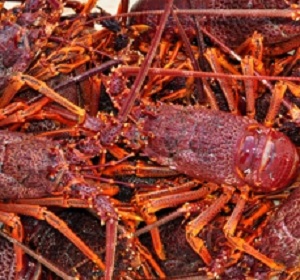
Australian lobster exports feared latest victim of China trade dispute
Tonnes of live Australian lobster are stranded on the tarmac at a Chinese airport, prompting fears they are the next victim in the ongoing trade dispute between Australia and China. The lobsters are facing Chinese customs clearance issues as exporters run out of time to get them into restaurants and shops before they are spoiled. A rejection of the lobsters or a further delay of more than 48 hours, would send a message that it is another trade strike after a year of rising tensions. In 2018-19 more than 94 per cent of Australia’s $752 million rock lobster exports went to China, >click to read< 08:17
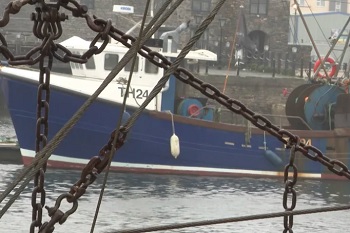
Newlyn Fishermen fear for their future as Coronavirus threatens a second wave
David Stevens, who owns the Crystal Sea trawler which operates out of Newlyn, said: “We’re free market, we don’t have a fixed price for fish. “That all depends on distribution, and if we can’t distribute that fish your market will decline. The entire industry will suffer huge losses until we’re out of lockdown situations once again.” Mr Stevens says some skippers may be forced to tie their boats up for the winter. “We’re going to have to reduce the supply to keep the fish price up. But with the restaurant trade closing down around the country, we’re going to lose 30 per cent of our market price.” >click to read< 10:25

Gloucester: Open Door, fishing vessel win food security grants
The Open Door and a Gloucester fishing company will share in $5.9 million in state grants to help ensure a secure food supply chain for Massachusetts residents,,, The Open Door, which operates food pantries in Gloucester and Ipswich and other food delivery services, received $201,073,,, Also, the Russo Fishing Co., which operates the F/V Miss Trish, received $95,000 to develop an automated fish-gutting and conveyor system on the deck of the vessel to reduce the amount of time its catch remains on deck. The award to the Russo Fishing Co. is one of eight to seafood harvesters, producers and processors, as well as aquaculture operations throughout the state. The inclusion of fishing industry elements among the grant awards was a key point of emphasis, according to state Senate Minority Leader Bruce Tarr, R-Gloucester. >click to read< 16:10
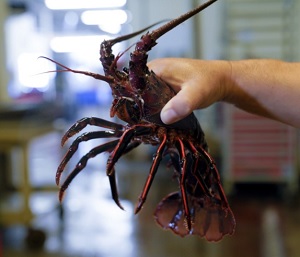
California Lobster season debuts amid changing seafood industry
It’s California spiny lobster season, from October through mid-March. Local fishermen and seafood retailers are celebrating its arrival, announcing the happy news that prices are the lowest in many years and the supply plentiful. What’s changed? In recent years, more than 95 percent of these well-loved California crustaceans were shipped to China, leaving only high-priced, limited quantities for local consumption. Rumors circulated that some fishermen were contemplating suspending operations, discouraged by their lost markets. Then, just as quickly, attitudes changed, as reality sank in. “People have to eat. If we don’t fish, what are people going to eat?” >click to read< 09:40
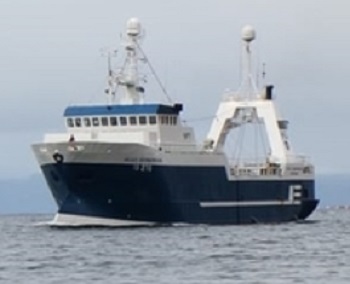
Five Unions Press Charges Against Fishing Company following Coronavirus Outbreak Aboard Fishing Vessel
Five unions are joining forces to press charged against a captain and fishing company for keeping a crew of 25 at sea for three weeks despite a COVID-19 outbreak on board. Twenty-three of the 25 crew members became infected by the novel coronavirus in the outbreak, many developing serious symptoms. The ship stayed out at sea for several weeks contrary to guidelines from authorities and many ill crew members kept working. The five unions are pressing charges against the captain of the freezer trawler Júlíus Geirmundsson, on which the incident occurred, as well as against the fishing company that runs the ship, Hraðfrystihúsið Gunnvör. >click to read< 14:33
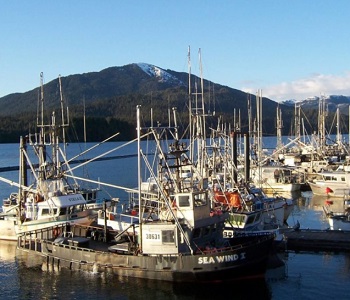
B.C.’s commercial halibut season extended three weeks due to pandemic caused market disruptions
Fisheries and Oceans Canada (DFO) said the closure, normally scheduled for Nov. 15, will now fall on Dec. 7 for the 2020 season. All groundfish hook-and-line harvesters wanting to participate in the extended halibut season will need to have the conditions of their licence amended prior to fishing past the original November closure. Additional sector-specific instructions on how to request the amendment will be forthcoming,, Meanwhile, costs to harvest, process and ship products have escalated as the sector tries to meet COVID-19 safety protocols. >click to read< 20:53

“No one knew about this COVID thing,” says CEO that kept sick fishermen at sea
The CEO of a seafood company that kept COVID-infected fishermen at sea for three weeks has responded to public criticism with a statement and interview that leaves more questions than answers. Twenty-two of 25 crew members on one of the company’s ships contracted COVID-19 shortly after setting out to sea. The company has been under fire,,, Einar Valur’s statements in an interview with Vísir also seemed contradictory. Though he admitted the company “underestimated the conditions on board,” he also stated that “This is new. No one knew about this COVID thing. >click to read< 13:40
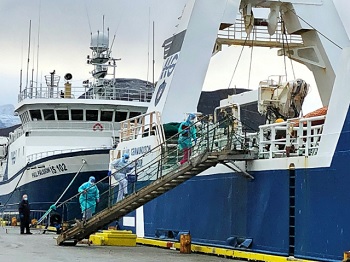
‘Deplorable Circumstances’ for Coronavirus Infected Freezer Trawler Crew
They’re out at sea and unable to go anywhere, watch men falling ill, but the processing of the fish continues, and they keep fishing; it is windy,” Finnbogi Sveinbjörnsson, head of the Union of the Residents of the West Fjords, “As our vice chairman so appropriately phrased it, ‘Fishermen work as long as they’re able to stand,’ but this is no joking matter,” he adds. He is referring to an issue widely discussed in Iceland over the weekend, where one after another, the crew members of the freezer trawler Júlíus Geirmundsson, owned by the fishing company Hraðfrystihúsið Gunnvör, fell ill while the trawler was out fishing and were denied the opportunity to return to harbor to be tested for COVID-19 until three weeks had gone by. >click to read< 08:53

Coronavirus: Maine Fishermen’s Forum board of directors has canceled the 2021 event
“There is no possible way that we can protect our forum participants in such a tight environment, due to COVID-19 and required safety restrictions,” Steve Train, a lobster fisherman on Casco Bay’s Long Island and president of the forum’s board of directors, wrote in an Oct. 21 letter to commercial fishermen and posted to the forum’s website. The letter added, “The board intends to continue serving the commercial fishing industry throughout 2021. We will be meeting soon to discuss options, and will share more details as they become available.” >click to read< >mainefishermensforum.org< 08:02
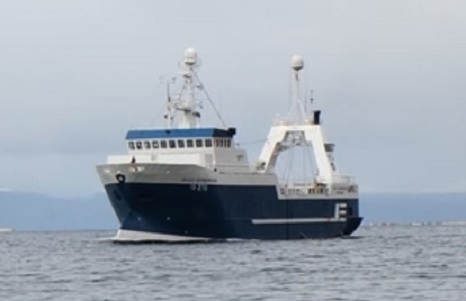
Fishing Company under Fire for Keeping Coronavirus Infected Crew at Sea for Three Weeks
Despite crew members developing flu-like symptoms one by one, Júlíus Geirmundsson didn’t return to harbour until it needed to refuel last Sunday, after three weeks at sea. During refuelling, the crew was tested for COVID-19 but left again for the fishing grounds before the results were in. They returned as soon as it was discovered that the majority of the crew had contracted COVID-19.,, Hákon Blöndal, the ship’s first engineer, called out the fishing company’s explanation,, “This isn’t the whole story, and people have to grow a pair and admit their mistakes,” >click to read< 15:38
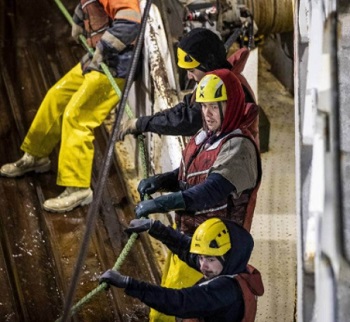
Salaries can be high, with lots of time off – so why can’t fishing boats hire Kiwis?
The worker shortage in the deep-sea fishing industry is almost at crisis point as it struggles to attract new workers, industry leaders say. The issue has been highlighted this week by nearly 240 Russian and Ukrainian fishermen now quarantining in Christchurch’s Siduma Hotel after 11 of them tested positive for Covid-19. But this recent dilemma was only exacerbating a problem the industry had with recruiting new workers. >click to read, or listen to audio report< 19:05
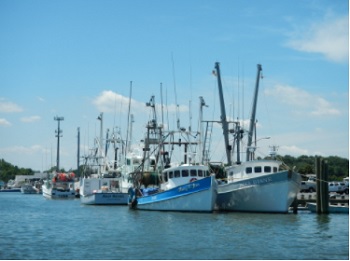
CARES Act Funding Available for Maryland Fishing Industry
The Maryland Department of Natural Resources announces applications will be available Nov. 4 for economic relief funds for the commercial seafood industry through the federal Coronavirus Aid, Relief, and Economic Security Act (CARES), for those who have been affected by the COVID-19 pandemic. The application will be available to eligible members of the seafood industry on the Maryland OneStop website. The deadline to apply is Feb. 28, 2021. >click to read< 16:20
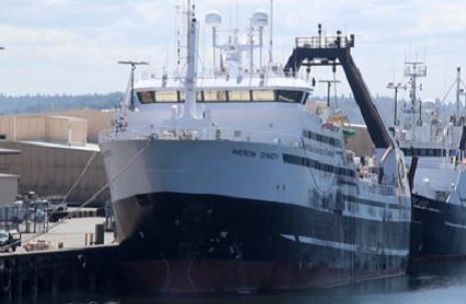
How an Ill-Fated Fishing Voyage Helped Us Understand Coronavirus
F/V American Dynasty, a commercial trawler, departed Seattle one day in May to fish for hake off the Washington coast. Before leaving, its 122 crew members were screened for the coronavirus using the highly accurate polymerase chain reaction (P.C.R.) method, and all the results came back negative. But because those tests are “good but not perfect,” they missed at least one case: Somehow SARS-CoV-2 found its way on board. When a crew member fell seriously ill, the vessel returned to port, and almost everyone was tested for the virus again,,, The finding is believed to be the first direct evidence that antibodies protect against SARS-CoV-2 infection in humans, and it offers clues about what sort of concentrations might be needed to confer immunity. >click to read< 10:24
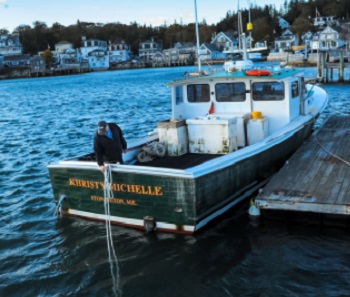
Despite an uncertain start to the fishery’s season, Maine lobster rolls on as the industry pivoted to new markets
Stonington lobster fisherman John Williams usually hauls his boat out in February for annual maintenance and paint in preparation for the start of the spring fishing season. “Then COVID started,” The health emergency was worsening and the economy shutting down. That included one of the lobster industry’s biggest markets — restaurants. The large cruise ship and casino markets also slammed shut. International freight and shipping to China, emerging as a large consumer of lobster, had nearly stopped. “I got thinking about it and said, ‘This doesn’t look very good. We won’t have any market,’” Williams says. >click to read< 10:31
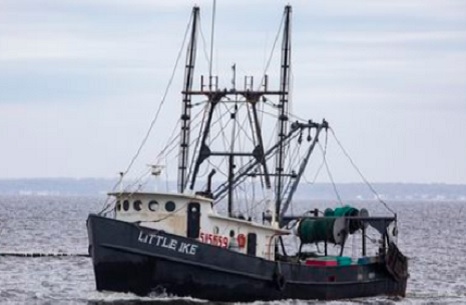
It’s Important! N.J. cleared to provide $11M in relief for sinking fishing industry
Months after the pandemic rocked New Jersey’s fishing industry, millions of dollars in federal coronavirus relief is set to finally flow to the anglers that need it. The National Oceanic and Atmospheric Administration has approved New Jersey’s plan to spend $11.3 million in federal fisheries relief, U.S. Rep. Frank Pallone, D-6th Dist., announced Tuesday. The approval allows state authorities to begin distributing the money, which was allocated to the state as part of the $2 trillion CARES Act that became law in March. >click to read< 09:25
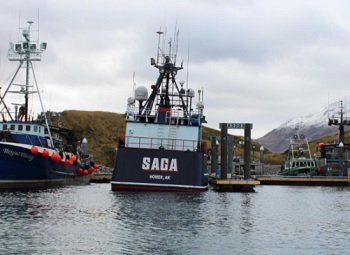
Coronavirus Quarantine Period Shapes Unique Season For Deadliest Catch Fishermen
Today marks the opener for the 2020 red king crab fishing season. The beginning of the king crab season is always a busy time in Unalaska/Dutch Harbor,,, Despite the influx of fishermen and television crews, this season was a little quieter than usual due to the coronavirus pandemic and local mitigation protocol that required most fishermen to quarantine for two weeks. Blake Smithmeyer, the greenhorn on the Summer Bay,, Smithmeyer said he was working as a chef at a restaurant in Tacoma, Washington, before his friend, Landon Cheney, the engineer on the Summer Bay, received the call that ended up bringing Smithmeyer to Dutch Harbor. >click to read< 07:52
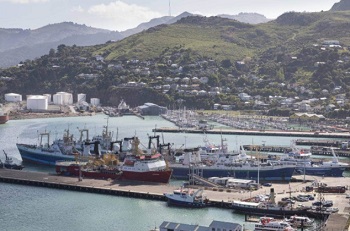
Russians jet in to save New Zealand’s beleaguered deep-sea fishing industry
Hundreds of Russian and Ukrainian seamen will fly into Christchurch in the coming weeks to save the country’s beleaguered deep-sea fishing industry, which has been haemorrhaging cash and is on the brink of mass layoffs. About 440 fishermen will arrive on two flights chartered by fishing companies – the first of which touches down from Moscow via Singapore on Friday. New Zealand’s deep-sea fishing industry, largely reliant on overseas workers, has been crippled by Covid travel restrictions that have left operators unable to crew their boats, costing tens of millions of dollars.>click to read< 09:21
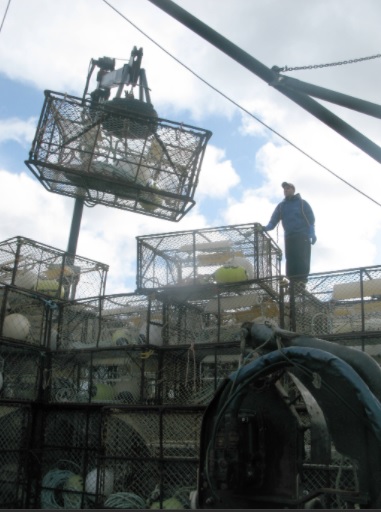
Bering Sea Crab harvests set: Kings still in decline, snow and Tanner see bump
Commercial fishermen will be allowed to harvest a total of 45 million pounds of snow crab from the Bering Sea waters this year, with 4.5 million of that set aside for Community Development Quota groups and the rest for individual fishing quota, or IFQ, holders. That’s about 34 percent larger than the limit last season, which was also an increase over the previous year. Bering Sea Crabbers Association Executive Director Jamie Goen said that’s good news for the fleet. However, members of the fleet also think that TAC could have been a lot higher had the National Marine Fisheries Service been able to conduct its regular surveys. >click to read< 08:29
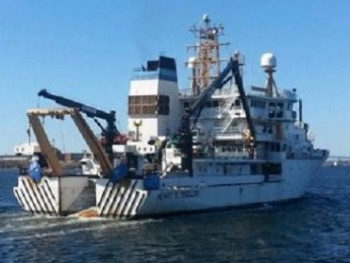
Collins and several colleagues call on NOAA to resume ‘usual operational tempo’
The National Oceanic and Atmospheric Administration (NOAA) should get back to its regular schedule of conducting fisheries research surveys, which have been cancelled since May due to the COVID-19 pandemic, according to U.S. Sen. Susan Collins and several colleagues. Additionally, NOAA should identify and resolve any challenges created by the pandemic that prevented this year’s surveys to ensure surveys are safely conducted in 2021, the lawmakers wrote in a Sept. 30 letter sent to Dr. Neil Jacobs, acting administrator at NOAA. Among the members who joined Sen. Collins in signing the letter were U.S. Sens. Richard Burr (R-NC), Roger Wicker (R-MS), and Doug Jones (D-AL). >click to read< 09:00
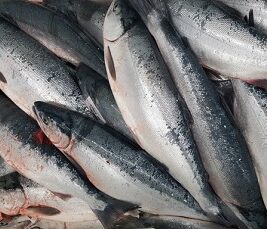
To the editor: Thank you, fish processors
The 2020 commercial fishing season will go down in the history books. In March and April, the prospect of executing statewide fisheries was in question amidst the COVID-19 pandemic and even communities that rely upon fisheries as their economic drivers were pressing for partial or complete closures. Cordova and the opening of the Copper River District were in the spotlight as the first Alaskan salmon fishery to come on line for the summer salmon season. by Dennis Zadra >click to read< 19:44
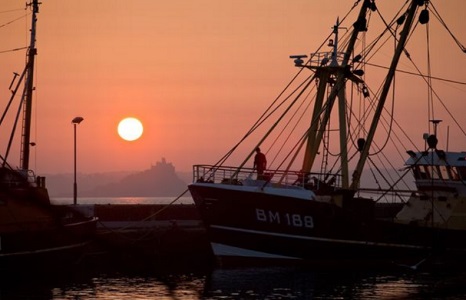
SW Cornwall fishing industry fears destruction from Coronavirus and a ‘no deal’ Brexit double whammy
The South West fishing industry faces potential destruction from a “no deal” Brexit coupled with the ongoing coronavirus pandemic, a leading industry figure says. Jim Portus, chief executive of the South Western Fish Producer Organisation, said there is concern a “bad deal” or “no deal”, when the transition period ends in January 2021, will be disastrous for the UK fishing industry, which led the march for Brexit. He said: “I don’t want to see fishermen sacrificed for the UK to get a good deal. We want to be part of that good deal. We’re in a situation where we could face a double dose of nightmare with Covid and Brexit and our fishing industry risks being destroyed. >click to read< 17:10
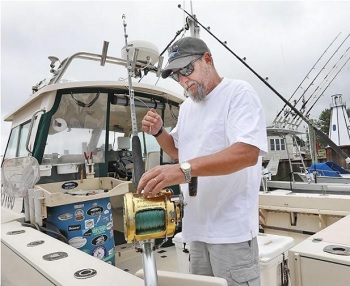
Do you think your seafood is cheaper? It is. The Coronavirus pandemic caused a drop in demand
The ongoing pandemic has impacted nearly every aspect of life on the South Shore, including the commercial fishing and lobster industries. “It’s hurt them big time,” said retired Cohasset fisherman Matt Marr. “There are so many things that factor in. Most of the restaurants are closed, hotels are empty, casinos are empty, cruise ships don’t exist anymore. Those places bought a lot of lobster. So, their markets have definitely diminished.” Reduced business at restaurants has caused a significant drop in demand, said Tommy Alioto. The pandemic didn’t affect lobstermen’s ability to do their job, but the low demand caused an excess of inventory and a drop in price. >click to read< 15:30
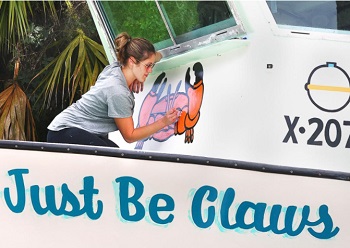
Stone crab season opens Oct. 15 with new regulations in place
For roughly a week now, armadas of Floridian crabbing fleets and their deckhands have boated miles offshore into the Gulf of Mexico and the Atlantic Ocean to lay their traps on the depths. Come Thursday, Oct. 15, 2020, these crabbers will venture out again to launch Florida’s stone crab season, hauling in anticipated bounties of Menippe mercenaria and their treasured claws. “We’re putting them out right now,” Richard Stiglitz, owner of the Homosassa-based Salty Bones Fisheries, said about 650 of his 10,000 traps. It’ll take some time before crabbing crews know what kind of season they’ll have. >click to read< 10:05
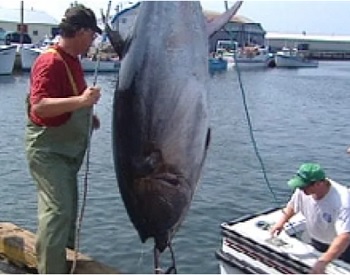
Coronavirus Pandemic’s ‘second wave’ sending P.E.I. tuna prices down
Tuna fishers out of North Lake, P.E.I., are seeing the impact of rising Coronavirus case numbers in central Canada. Tuna buyer and processor Jason Tompkins said the season got off to a good and early start this year. “We had more fish go in July this year than any year in the last 20,” Tompkins told Island Morning host Laura Chapin. “A lot of guys did see the writing on the wall. They took our advice as buyers and went early, and the prices we saw in July and August were some of the highest we’ve seen in years.” But those prices have plummeted as COVID-19 cases rise. Tuna is almost exclusively exported off the Island, with restaurants the main market. >click to read< 13:16
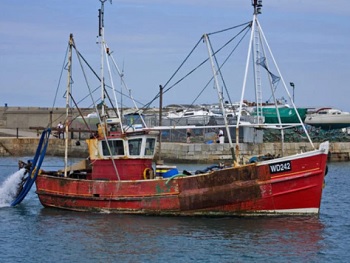
Review Shows Irish Fishing Industry Buoyed By Exports But Brexit & Coronavirus Cast A Shadow
The Department of Agriculture, Food and the Marine’s latest Annual Review and Outlook for the fisheries sector is a generally positive one, though tempered by the challenges of Brexit and the coronavirus. Published today, Thursday 8 October, the review cites CSO figures for 2019 which put the value of Irish seafood exports at €577 million with increases in the value of both salmon and mackerel, Ireland’s most valuable export catches. The coronavirus pandemic has seen similar challenges experienced across the fisheries and aquaculture sectors over the course of 2020 thus far. “Nonetheless, in spite of the difficulties, the fishing industry has continued to keep food in our shops and on our tables during this extraordinary time,” >click to read< 14:10
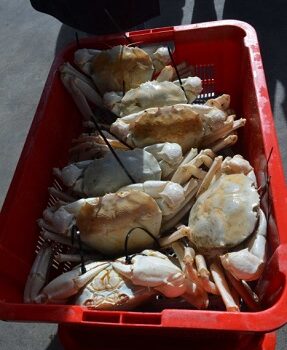
Western Australia’s Crystal crabs immune to impact of coronavirus, selling for more than $300
The crabs are found in a thin trench of water, 80 kilometres off the Western Australia coast, at depths of 800 metres. West Coast Deep Sea Fishery takes to the pristine deep waters all year round in search of the product. Managing director Glen Bosman said he believed he had the best crystal crabs in the world. “Not arguably, it’s fact. We receive the highest price for that species of crab,” he said. The crystal crab is pale white in colour, with distinctly shorter walking legs, and can weigh more than two kilograms. “The crab sits in the middle of the table, is broken up, and then shared by a number or people because of its size. >click to read< 09:55
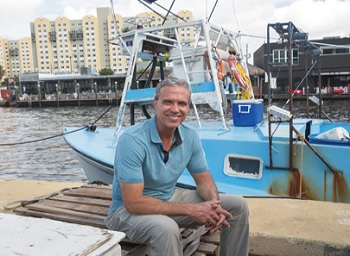
Commercial fishermen sinking as yields fall without China’s buyers
“Commercial fishing operations are an important component of Port Miami River’s marine industrial businesses, which generate countywide jobs,” said Horacio Stuart Aguirre, chairman of Miami River Commission. Offshore fishermen work in a predominantly healthy environment, so Covid-19 hasn’t been debilitating for the workforce, said Luis Garcia of Garcia’s Seafood, a commercial lobster and stone crab business, “but it’s a pandemic in the sense that it has trickled down economically. The price of our product is plummeting because restaurants and bars that buy our product were not in business and we were sitting on the product. “In the past several years we’ve had another revenue stream selling overseas – lobster to China, for example – but that market also shut down.” >click to read< 11:18






